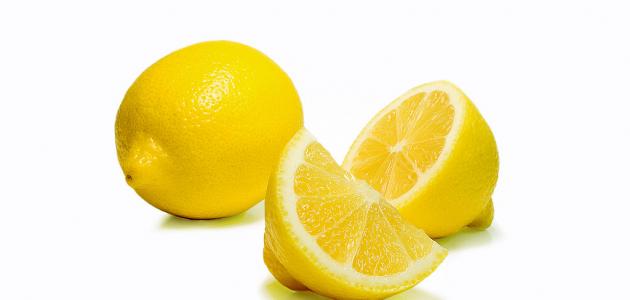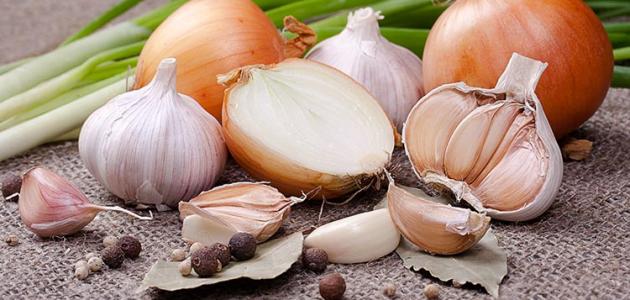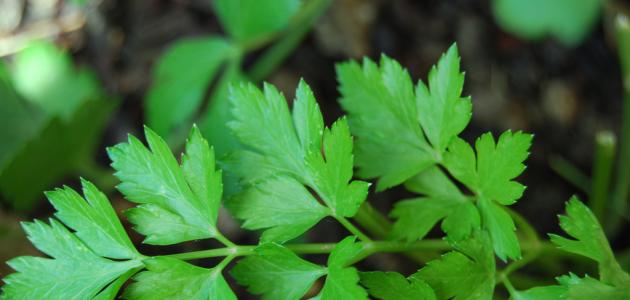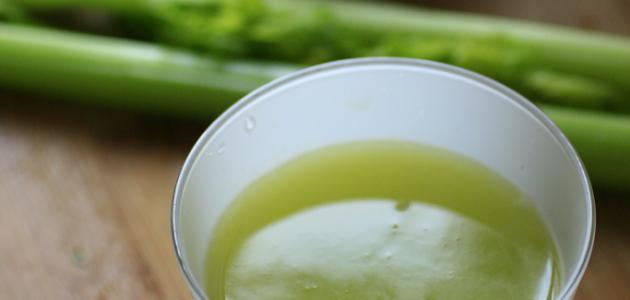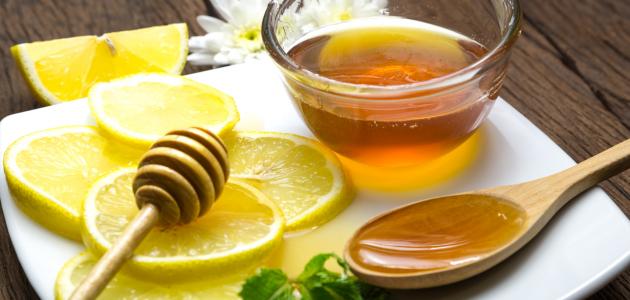Lemon
The lemon, which has the scientific name ( Citrus limon ), is one of the types of citrus fruits, and is the third most important citrus crop after oranges and tangerines. [1] The lemon tree is a small tree, as it grows to a height of 3 to 6 meters, and its leaves bear a pale green color. It has a sharp oval shape, and the lemon is considered a native plant in northern India. It is also cultivated in the Mediterranean region, and in subtropical regions all over the world. [2] Many scientific studies have examined the health effects of lemon, as it was found that it is considered Rich in phenolic compounds, vitamins, minerals, dietary fiber, essential oils, and carotenoids, [1]Thus, it is considered one of the fruits important to human health. [3] This article will discuss the health benefits of lemon .
The nutritional composition of lemon
The following table shows the composition of each 100 gm of lemon juice : [4] and every 100 gm of lemon pulp [5] of the nutrients:
| The food component | Value in 100g of lemon juice | The value is in 100g of lemon pulp |
|---|---|---|
| water | 92.31 gm | 88.98 gm |
| energy | 22 calories | 29 calories |
| Protein | 0.35 g | 1.10 g |
| Fats | 0.24 g | 0.30 g |
| Carbohydrates | 6.90 gm | 9.32 g |
| Dietary fiber | 0.3 gm | 2.8 g |
| Total sugars | 2.52 gm | 2.50 g |
| Calcium | 6 mg | 26 mg |
| Iron | 0.08 mg | 0.60 mg |
| magnesium | 6 mg | 8 mg |
| Phosphorous | 8 mg | 16 mg |
| Potassium | 103 mg | 139 mg |
| Sodium | 1 mg | 2 mg |
| Zinc | 0.05 mg | 0.06 mg |
| Vitamin C. | 38.7 mg | 53.0 mg |
| Thiamine | 0.024 mg | 0.040 mg |
| Riboflavin | 0.015 mg | 0.020 mg |
| Niacin | 0.091 mg | 0.100 mg |
| Vitamin B6 | 0.046 mg | 0.080 mg |
| Folate | 20 mcg | 11 mcg |
| Vitamin B12 | 0.00 mcg | 0.00 mcg |
| Vitamin A | 6 universal units, or 0 micrograms | 22 universal units, or 1 microgram |
| Vitamin E (alpha-tocopherol) | 0.15 mg | 0.15 mg |
| Vitamin D. | 0 global units | 0 global units |
| Vitamin K. | 0 mg | 0 mcg |
| Caffeine | 0 mg | 0 mg |
| Cholesterol | 0 mg | 0 mg |
the benefits of lemon
Lemon contains phenolic compounds , which include flavonoids, as well as vitamins , minerals, dietary fiber, essential oils, and carotenoids, and these compounds are responsible for the health benefits of lemon, especially vitamin C. And flavonoids, which act as antioxidants, [1] and the benefits of lemon include the following:
- Fight cancer; This is due to the effect of flavonoids and the essential oils it contains. Studies have also found the ability of some compounds in lemon to stimulate the death of cancer cells and prevent their reproduction. [1]
- Lemon provides high amounts of potassium, which plays an important role in maintaining the balance of body fluids, in the functioning of muscles, and in the basic functions of body cells. [6]
- Lemon provides vitamin C, which acts as an antioxidant, which plays an essential role in preserving teeth, bones and cartilage. [6]
- Some flavonoids found in lemons can contribute to lowering blood cholesterol and other lipids (lipids), according to what some studies have found on rats with high dietary-stimulating cholesterol. [1]
- Lemon can contribute to weight loss and reduce the risk of obesity. Where citric acid and some other compounds found in lemons have the ability to raise the rate of burning in the body [1], as well as the pectin present in citrus peels, which is isolated from the lemon peel, [7] plays a role in increasing the feeling of satiety, which can reduce From the amounts of food and calories consumed. [8]
- Stimulating the normal proliferation of intestinal cells, stimulating their enzymes, and increasing the production of short-chain fatty acids in the rectum. [1]
- Drinking lemon juice plays a role in the nutritional treatment of calcium urolithiasis patients , by increasing the volume of urine, which reduces the concentration of calcium and other salts in it, and it can also increase the excretion of citrate, in addition to that, drinking drinks The high content of citric acid contributes to relieving the feeling of fatigue, and the citric acid acts as a natural inhibitor of crystallization in the urine, which contributes to the treatment of calcium urine stones. [1]
- Lemon juice is considered anti-bacterial. [1]
- The compound hesperidin (Hesperidin) found in lemon can play a role in treating rheumatoid arthritis. [1]
- The essential oils found in lemons have anti-bacterial, viral, and anti-fungal effects. Citral essential oil is the most important essential oil present in lemon in its anti-viral properties. [1]
- Reducing blood pressure, as a study conducted on women with high blood pressure found a correlation between daily consumption of lemon and lower systolic blood pressure, and similar results were found in studies conducted on rats for both lemon and aqueous lemon peel extract. [3]
- There are some indications that one of the compounds in lemon (which is called Eriodictyol glycoside) may improve hearing capacity and relieve symptoms of dizziness, nausea, and vomiting in people with Meniere's disease , but this effect needs more. From scientific studies. [1]
- Contribution to the treatment of scurvy, which is caused by a lack of vitamin C. [1]
- Many studies have found roles for each of the compound naringin and the compound of narangin found in citrus fruits and grapes in fighting high blood sugar and hardening of the arteries, in addition to their ability to reduce the inflammatory state active in the body, fight oxidation, and fight Obesity, high cholesterol, blood pressure, and heart and liver cells protection. [9]
- Some studies have found that the polyphenolic compounds extracted from lemon contribute to curbing weight gain, lipid accumulation, elevation of lipids (fats) and blood sugar, and insulin resistance in diet-induced obesity rats. [9]
- It is common to use lemons to replace vitamin C in cases of cold, but this use is not scientifically proven. [2] Despite what many believe, scientific studies have found that taking vitamin C as a preventive measure against colds has not been effective in reducing the chance of infection. He worked to reduce the duration and severity of his symptoms, while taking it after the actual infection with the cold did not reduce the duration or severity of symptoms. [10]
References
- ^ A b t w c h x d y t g o u E for González-Molina has E for , Domínguez-R for Perles, Moreno the DA, Et al . . (2009), “Natural bioactive compounds of Citrus limon for food and health” , Journal of Pharmaceutical and Biomedical Analysis , Issue 51 (2), Page 327-345. Edited.
- ^ A b , Thomas The Fleming (2000), the PDR For Herbal Remedies Store : Medicines , Montvale: Medical Company About enterprise | : Economics, 460-461 . Page. Edited.
- ^ A b Yoji Kato, Tokio Domoto, Masanori Hiramitsu, et al . (2014), “Effect on Blood Pressure of Daily Lemon Ingestion and Walking” , Journal of Nutrition and Metabolism , Issue 2014, Page 6 pages. Edited.
- ↑ The National Agricultural Library, "USDA National Nutrient Database for Standard Reference Release 28: Lemon Juice, Raw" , United States Department of Agriculture , Retrieved 23-5-2016.
- ↑ United States Department of Agriculture, "USDA National Nutrient Database for Standard Reference Release 28: Lemons, raw, without peel" , The National Agricultural Library , Retrieved 23-5-2016.
- ^ A b Meredith Stanton , , Kathleen M Reviewed by vBulletin® Zelman (2006), "Lemons: A Zesty, the Healthy Fruit" , of WebMD , Retrieved 23-5-2016. Edited.
- ↑ VO Aina, Mustapha M. Barau, OA Mamman, Amina Zakari, et al . (2012), “Characterization of Pectin from Peels of Lemon (Citrus limon), Grape Fruit (Citrus paradisi) and Sweet Orange (Citrus sinensis)” , British Journal of Pharmacology and Toxicology , Issue 3 (6), page 259-262. Edited.
- ↑ Clare L. Adam, Lynn M. Thomson, Patricia A. Williams, et al . (2015), “Fermentable Dietary Fiber (Pectin) Decreases Caloric Intake, Adiposity and Lipidaemia in High-Fat Diet-Induced Obese Rats” , PLOS One , Issue 10, Page 10. Edited.
- ^ A b Ashraful Alam, M Nusrat Subhan, Mahbubur Rahman , , M J. Uddin Shaikh, Hasan 's M Reza 's , D for sale. And Satyajit Sarker (2014), "Effect Of the Citrus Flavonoids, Naringin And Naringenin, On And Metabolic Syndrome type and Their Mechanisms of Action " , Advances in Nutrition , Issue 5, Page 404-417. Edited.
- ↑ Robert M. Douglas and Harri Hemilä (2005), “Vitamin C for Preventing and Treating the Common Cold” , PLos Medicine , Issue 2 (6), Page e168. Edited.
